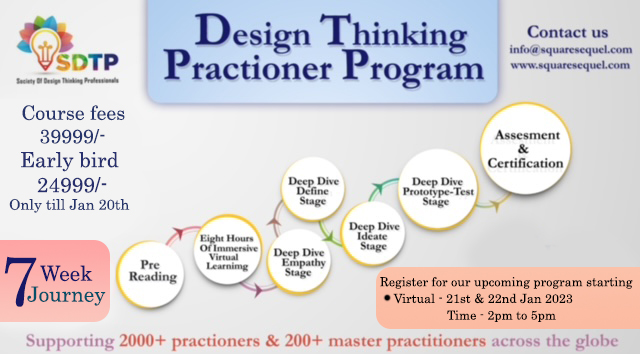Vaibhav was ecstatic to join a renowned company as a sales professional after completing his graduation. Ever since he was young, he had always dreamed of having a successful career in sales, driven by his natural charisma and passion for building relationships. However, as Vaibhav dove into the uncharted waters of the sales world, he quickly realized that it was not as easy as he had imagined. The intricacies of sales strategies, customer psychology, and overcoming objections seemed overwhelming, and he yearned for guidance to navigate through this new territory.
Vaibhav called his uncle, Sivaranjan, who held the prestigious position of Vice President in one of the major corporations. Vaibhav eagerly explained his situation and desire to excel in his sales career. To his delight, Sivaranjan immediately sensed his nephew’s eagerness and agreed to guide him on an exciting journey to unlock the secrets of sales success.
Over the weeks, Vaibhav and Siva set sail to delve into various aspects of sales. By far, Siva shared his invaluable insights and emphasized the buying and selling process dynamics, the myths and facts about sales, the FAB model, understanding and meeting customer needs, the decision criteria in detail, the art of probing, open and closed-ended questions, the art of sales storytelling, ways to weave a sales story, and the techniques to close a sales call.
Vaibhav, can you channel your inner Sherlock Holmes and read your customers’ minds—asked Siva.
Vaibhav gave it a thought and said, “No uncle, I don’t think I can.”
Since we are talking about reading minds and how the mind of a customer works, do you know what is our brain’s favorite channel? It is the neural network. You might be wondering, why are we talking about the mind and its functioning in the world of sales. Well, I am glad to tell you that understanding human behavior in your initial days can take you a long way. Human behavior is one of the strongest foundations of sales and by leveraging that you can get people to make purchases, explained Siva.
Vaibhav was literally awestruck with such a revelation, and he just looked at Siva with his eyes wide open. Siva was afraid his eyes might pop out with astonishment.
Siva offered a glass of water to Vaibhav and continued, “While we’d like to think we’re a group of tenacious people who know how to use modern sales techniques, the study indicates that we all think and react the same way in most situations. That is why getting to know your customers is the first step toward closing more deals.
He continued, “Our brain is strikingly amazing, and if you can trace the correct path to tap into the needs and wants of the customers, you can make the sale.”
Uncle, how to know the right way of seeing through the customers’ minds—asked Vaibhav.
Vaibhav, every action we perform is based on our psychology. Certainly, when we apply psychology to the sales process, our customers are easier to understand and it can grow the business with a next-level speed.
Psychology of sales, sounds intriguing, uncle, I can’t wait to learn more about it, said Siva.
Shall we delve into what the psychology of sales truly exactly is and the best ways to leverage it to close the sales calls more efficiently—asked Siva.
Vaibhav nodded.
What Is The Psychology Of Sales?

“If you want to know how to sell more, then you better know why customers buy.”
– Steve Ferrante
Vaibhav, sales psychology is a method that explores the mindset of your target market in order to offer your services and products. Instead of convincing them that they require your product, you find ways to advertise their current wants and requirements. People can purchase a product or subscribe to a service in a variety of ways.
When it comes to purchasing new things, some people choose logic and reason above emotion. In other circumstances, the person buys impulsively and then rationalizes the purchase. Understanding and responding to your customer’s needs is the foundation of a successful sales process. People want to be understood, and being able to relate to them through your brand can boost your chances of getting a sale, said Siva.
It means by gaining insights into the underlying motives and emotional drivers of customers, I can adapt their strategies to engage, persuade, and ultimately close deals— asked Vaibhav.
Yes, by combining principles from psychology, neuroscience, and behavioral economics to understand how individuals think, feel, and make choices in the context of sales interactions, added Siva.
Vaibhav, do you want to explore the ways to close your sales calls successfully—asked Siva.
Yes, uncle, said Vaibhav.
So, let’s explore the role of sales psychology in closing a sales call.
Psychological Triggers To Close A Sales Call

Dr. Cialdini, an American psychologist, conducted peer-reviewed research on the science of persuasion in the 1980s. From this, he developed the influencing concepts that are still employed by effective sales and marketing professionals today.
Dr. Robert Cialdini’s widely acclaimed NYT bestseller “Influence” best describes the psychology of selling. According to him, each of these principles delves into a person’s psychological responses during a sales situation.
Vaibhav, it is critical that you understand these universal principles of influence and how to use them in order to become a skilled persuader:
1. Reciprocity
The principle of reciprocity is a powerful tool that we often use to influence customer behavior. It revolves around the idea that when someone receives something of value, they feel obligated to return the favor in some way. In sales, leveraging reciprocity can be an effective strategy to increase sales and foster customer loyalty.
Imagine you walk into a retail store and browse through the products. A salesperson approaches you and offers a free sample of a new fragrance. You accept the sample and try it out.
A few days later, you receive an email from the store with a personalized thank-you message, expressing gratitude for trying the sample. Along with the email, they offer you a discount coupon for your next purchase.
The principle of reciprocity comes into play here. By providing you with a free sample, the store has triggered a psychological obligation. You feel inclined to reciprocate the favor by considering a purchase or exploring further offerings from the store.
2. Social Proof
The principle of social proof is a powerful tool in the buyer journey as customers seek validation from others before making a decision. Sales organizations can effectively leverage social proof by providing customers with showcasing real-time customer activity notifications.
Imagine you are attending a real estate conference where potential buyers are gathered in a conference room, browsing through different housing options and considering their investment choices. As you explore the options, you hear a sudden burst of applause coming from a corner of the room. Curious, you turn your attention towards the commotion.
You see a group of people celebrating and cheering for an individual who just announced that they have purchased a flat in one of the showcased properties. The atmosphere is filled with excitement and positive energy as everyone applauds the buyer’s decision.
In this scenario, the principle of social proof is at play. The loud round of applause and the visible celebration create a powerful social influence on the other potential buyers in the room, including yourself. Witnessing someone being celebrated for their purchase creates a sense of intrigue and curiosity.
As you observe the scene, you begin to perceive that buying a flat in that particular property is an admired and respected choice. The positive reaction from others acts as social validation, suggesting that purchasing a property in that development is a desirable and worthwhile investment.
3. Commitment and consistency
It revolves around the theory that people like to be consistent with the things they have done or said. Once a person makes a certain decision, he/she often sticks to it whether that happens to be an intelligent choice or not.
When you attended the open house event, you explored the model homes and gathered information, you came across a sign-up sheet to receive updates and exclusive offers about the development. Intrigued by the prospect of staying informed about the project, you provide your contact information and sign up for the updates.
This small commitment establishes a level of engagement and interest on your part. Over the next few months, you receive regular emails and newsletters from the real estate company. Each communication reinforces your initial commitment and keeps you connected to the project.
As time goes on, the real estate company hosts exclusive events for potential buyers, such as private tours or VIP access to pre-sales. By attending these events, you further demonstrate your commitment and consistency in considering the development as a potential investment opportunity.
The real estate company effectively utilizes commitment and consistency techniques by providing regular updates and exclusive access opportunities. By nurturing your commitment and providing ongoing engagement, they increase the likelihood that you will continue considering the development as a potential investment, said Siva.
4. Authority
It highlights that individuals are more likely to be influenced by someone they perceive as having knowledge or power. In the context of closing deals, this means that customers are more likely to take action if the request comes from a credible source.
For example, the sales agent at the open house demonstrates authority by showcasing their extensive knowledge of the housing development. They confidently explain the architectural design, construction quality, and available amenities. They also provide insights into the surrounding neighborhood, including schools, transportation, and local attractions.
Their authoritative demeanor and expertise establish them as a trusted source of information. As a potential buyer, you are more likely to be influenced by their authority, relying on their guidance to make informed decisions. The sales agent’s expertise and credibility enhance their persuasive impact and contribute to your perception of the development’s value and desirability.
Here, the principle of authority is at play. The salesperson’s extensive knowledge, industry experience, and recognized achievements establish them as an authoritative figure in the field. Their expertise and confident demeanor create a sense of trust and credibility in their recommendations and advice.
As a potential buyer, you are more likely to be influenced by the salesperson’s authority. Their expertise and reputation give weight to their recommendations and make you feel more confident in their guidance. You may be more inclined to trust their advice and consider their suggestions for the car that best suits your needs.
5. Liking
It suggests that people are more likely to comply with requests from those they like. Factors such as physical attractiveness, intelligence, honesty, similarity, compliments, common interests, and shared goals contribute to this principle. In sales, companies can apply this principle by creating a user-friendly website and training their sales staff to build rapport with customers.
We’ll again go with the open house example, the sales agent creates a likable connection by being friendly, approachable, and genuinely interested in your needs and preferences. They engage in personalized conversations, actively listening to your requirements and offering tailored recommendations.
By finding common ground and sharing positive experiences with the housing development, they foster a sense of liking and relatability. As a potential buyer, you develop a favorable impression of the sales agent, feeling comfortable and confident in their guidance. The likable connection influences your decision-making process and increases the likelihood of considering the development as a viable option for investment.
6. Creating a sense of scarcity
It states the idea that your customers will always demand more of what is less. Customers place a higher value on scarce services or products than on abundant ones. Psychologists have discovered that when an offering is thought to be rare, people desire it even more.
Now you are pretty much aligned towards making an investment, the sales agent at the open house creates a sense of scarcity by highlighting the limited availability of units within the housing development. They emphasize that the development is in high demand and that units are selling quickly.
They may mention that only a few units remain or that prices will increase soon. By creating this sense of scarcity, you feel a heightened urgency to make a decision and secure a unit before you miss out. The perception of limited availability drives a fear of missing out (FOMO) and increases the motivation to act promptly, contributing to a higher likelihood of sales conversions.
The science is obvious when it comes to persuading buyers to utilize this technique. It is not enough to just inform consumers about the advantages of using your product or service. To capture your client’s attention, you’ll also need to highlight what makes your service unique and generate deals around it.
Vaibhav, learning more about the psychology of human behavior and why we do things the way we do them can provide a company with a sales advantage. The more you study people and their behaviors or reactions to your activities, the more you will be able to provide them with what they require, how they require it, and when they require it. In the end, providing people with what they need is the only way to get more business, explained Siva in detail.
I understood, uncle, by offering something of value upfront, and keeping a consistent engagement with them, I can make the customers more inclined to reciprocate by purchasing the product or service, added Vaibhav.
Absolutely, Vaibhav, I am always in awe of the way you grasp the concepts so quickly, keep up the spirits and keep learning the same way, said Siva with a smile that was stretched up to his eyes.
https://sopro.io/resources/blog/how-sales-psychology-helps-you-close-more-deals/
https://learn.g2.com/psychology-of-sales
https://mailshake.com/blog/psychology-of-sales/
https://snov.io/blog/wp-content/uploads/2022/03/featured.png
https://www-cms.pipedriveassets.com/Real-state-cold-calling.png
Written By: Jimmy Jain
Edited By: Afreen Fatima
Society of Design Thinking Professionals









